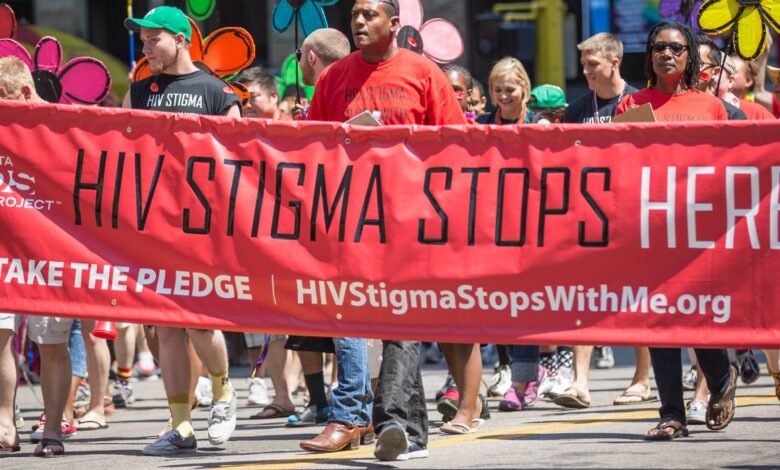Combating HIV/AIDS Stigma amongst Transport Workers

Transport enterprises are at risk because of the impact on their workforce. The costs of absences and sickness, and the loss of skilled and experienced employees, threaten output and profits. Other potential costs for enterprises include health benefits, insurance premiums, and even repatriating workers who fall sick while overseas.
HIV/AIDS Stigma
HIV stigma is defined as negative attitudes and beliefs about people with HIV. It is the prejudice that comes with labeling an individual as part of a group that is believed to be socially unacceptable.
Stigma often comes from lack of understanding or fear. Inaccurate or misleading media representations of mental illness contribute to both those factors. A review of studies on stigma shows that while the public may accept the medical or genetic nature of a mental health disorder and the need for treatment, many people still have a negative view of those with mental illness.
Researchers identify different types of stigma:
- Public stigma involves the negative or discriminatory attitudes that others have about mental illness.
- Self-stigma refers to the negative attitudes, including internalized shame,that people with mental illness have about their own condition.
- Institutional stigma, is more systemic, involving policies of government and private organizations that intentionally or unintentionally limit opportunities for people with mental illness. Examples include lower funding for mental illness research or fewer mental health services relative to other health care.
Stigma not only directly affects individuals with mental illness but also the loved ones who support them, often including their family members.
Stigma around mental illness especially an issue in some diverse racial and ethnic communities and it can be a major barrier to people from those cultures accessing mental health services. For example, in some Asian cultures, seeking professional help for mental illness may be counter to cultural values of strong family, emotional restraint and avoiding shame. Among some groups, including the African American community’s, distrust of the mental healthcare system can also be a barrier to seeking help.
Risks of HIV/AIDS on Transport Workers
Some groups of workers are at particular risk of HIV infection because of the nature and conditions of their work. Transport workers, in some situations, are such a group – whether they work on land (road and rail), sea or air routes. In a number of African and some Asian countries, HIV prevalence is higher among transport workers than in the general population, especially among long-distance drivers on some of the major transport ‘corridors’
Although most attention has been given to road transport, the key issues apply to most other groups of transport workers, for example seafarers, train crews, civil aviation workers and workers on inland waterways.
Many transport workers work on long-distance routes and spend time away from home. Trips are often made longer by administrative delays, especially at border crossings, and a poor transport infrastructure, and more difficult by inadequate rest and stress.
Transport workers report a lack of proper accommodation or lack of money to pay for it, and a lack of respect for their rights. Political insecurity and open conflicts make this problem worse. When basic wages are low, workers may spend longer away in order to get allowances and overtime. They may also forego accommodation to save money. If they sleep with a sex worker, this could be cheaper than the rent for a night in an ‘official’ hostel.
A survey conducted in Uganda showed that 70 per cent of drivers had spent less than a week at home in the previous 4 months. Often, drivers find partners in several different cities along routes they travel, or visit commercial sex workers. Sometimes they give lifts to women in exchange for sex (AIDS and transport: The experience of Uganda road and rail transport workers and their unions, International Transport Workers’ Federation, London, July 2000.)
Harmful Effects of Stigma and Discrimination
Stigma and discrimination can contribute to worsening symptoms and reduced likelihood of getting treatment. A recent extensive review of research found that self-stigma leads to negative effects on recovery among people diagnosed with severe mental illnesses. Effects can include:
- reduced hope
- lower self-esteem
- increased psychiatric symptoms
- difficulties with social relationships
- reduced likelihood of staying with treatment
- more difficulties at work
Measures to combat HIV/AIDS stigma amongst Transport Workers
At the workplace, the social partners can help create an environment of dialogue and trust which promotes the development of successful policies and programmes, and may also influence the local community and society at large. Below is a summary of measures that can be employed to combat HIV/AIDS stigma amongst Transport Workers;
Talk openly about mental health, such as sharing on social media.
- Educate yourself and others – respond to misperceptions or negative comments by sharing facts and experiences.
- Be conscious of language – remind people that words matter.
- Encourage equality between physical and mental illness – draw comparisons to how they would treat someone with cancer or diabetes.
- Show compassion for those with mental illness.
- Be honest about treatment – normalize mental health treatment, just like other health care treatment.
- Let the media know when they are using stigmatizing language presenting stories of mental illness in a stigmatizing way.
- Choose empowerment over shame – “I fight stigma by choosing to live an empowered life. To me, that means owning my life and my story and refusing to allow others to dictate how I view myself or how I feel about myself.” – Val Fletcher, responding on Facebook to the question, How do you fight stigma?
A lot needs to be done to combat rampant HIV/AIDS stigma amongst transport workers especially in third world countries as this will greatly boost confidence and improve production at the workplace.





